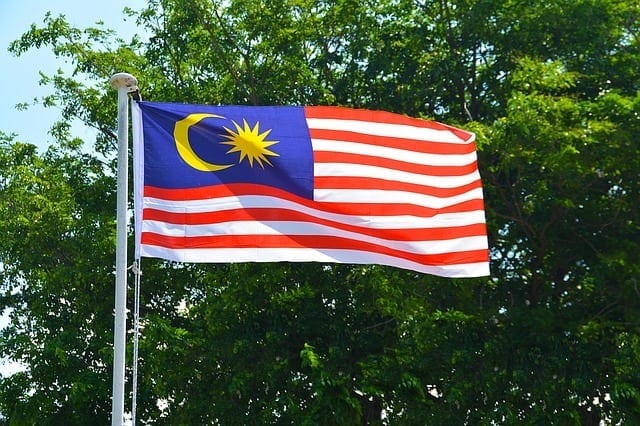Travel, Visit Malaysia 大马观光
Fact on Malaysia
1) The Jalur Gemilang was designed by an architect
Yup, you read that right! The Malaysian flag was designed by a 29-year old Public Works Department architect named Mohamad Hamzah in 1963. When the Federation of Malaya replaced the much-loathed Malayan Union, there was a contest to design a new flag. Out of hundreds of entries, three were selected for public voting and you could probably guess which design was chosen. The Jalur Gemilang was first raised in front of Istana Selangor on 26 May 1950.

2) The “Negaraku” was originally the state anthem for Perak
At the time of Independence, the country did not have a national anthem. Therefore, Tunku Abdul Rahman – then the Minister for Home Affairs – organised a worldwide competition to find a suitable national anthem.
They received a total of 512 entries, but none were deemed suitable. In the end, Tunku opted to use the Perak State Anthem, titled “Allah Lanjutkan Usia Sultan”, as the national anthem. Together with a Panel of Judges, Tunku wrote the new lyrics for “Negaraku”.

3) The REAL date (and location) Tunku Abdul Rahman announced Merdeka
We all know that on 31 August 1957, Tunku Abdul Rahman stepped onto the stage at Stadium Merdeka and declared independence with seven shouts of “Merdeka”, but do you know when Tunku actually announced the date of independence? The Father of Independence announced the date of independence on 20 February 1956 at Padang Bandar Hilir in Melaka.
Why Melaka, you ask? Well, it was because the state was where the foreign invasions began (the Portuguese invasion in 1511 and the Dutch invasion in 1641) before the whole Peninsula was colonised by the British, therefore Tunku thought it was only appropriate that Melaka be the place to proclaim the independence date.
Holding a 100-year-old ‘keris pukal’ in his right hand and shouting ‘Merdeka’ several times, Tunku announced 31 August 1957 as the date of independence in front of an ecstatic crowd of 100,000 people.

4) Malaysia’s oldest name originated in A.D. 150
Way before Malaysia got its name, Greco-Roman geographer Ptolemy named our lovely country Aurea Chersonesus, which means ‘peninsula of gold’. The name was found in Ptolemy’s book Geographia, written about A.D. 150.

5) The Kedah Sultanate is supposedly one of the oldest in the world
The Sultanate of Kedah is the earliest sultanate on the Malay Peninsula, and it is said to be one of the oldest in the world. Allegedly founded in 1136, Sultan Mudzafar Shah I was listed as the first Sultan of Kedah. The present Sultan, Sultan Abdul Halim Mu’adzam Shah, is the 28th Sultan of Kedah.

6) The oldest English school in Southeast Asia is located in Penang
Celebrating its 199th birthday this year, the Penang Free School was founded by Rev. Sparke Hutchings all the way back in 1816, making it the oldest English-medium school in Southeast Asia. Famous ‘Old Frees’ – a term used for its alumni – include the likes of Malaysia’s first Prime Minister Tunku Abdul Rahman, local screen legend Tan Sri P. Ramlee and badminton hero Dato’ Eddy Choong.

7) Borneo is the third largest island in the world
With an area spanning more than 743,000 km2, the Borneo Island – made up of Sabah-Sarawak, Brunei and Indonesia – is the third largest island in the world, after Greenland and New Guinea. Here’s another fun fact about Borneo: it is home to one of the oldest rainforests in the world.

8) The world’s largest underground cave chamber is located in Sarawak
The Sarawak Chamber in the Gunung Mulu National Park in Sarawak boasts the world’s largest underground cave chamber. Legend has it that the corridor of Gua Rusa – a 2km-long passage of caves which is a part of the Sarawak Chamber – could house five rows of eight Boeing 747 jetliners parked nose to tail!

9) Malaysia’s total highway length is longer than the Earth’s circumference
We’re not joking. In total, Malaysia has 65,877 km (and counting!) of highway. The Earth’s circumference? Only 40,075km! No wonder we have tolls everywhere.

10) Local time has been adjusted EIGHT times!
Well, there’s really a reason for the infamous Malaysian timing phenomenon. Local time in Malaysia has been adjusted a total of eight times throughout history: in 1932, clocks were advanced by 20 minutes to “lengthen” daylight; in 1941, the time was sped up another ten minutes; in 1942, it was fast forwarded another two hours to follow Tokyo’s time; in 1945, they reversed the clocks to the time observed in 1941, and finally, on 1 January 1982, Tun Dr. Mahathir decided to push the time forward by 30 minutes to sync up with Sabah and Sarawak. Interestingly, Singapore also adjusted their clocks on the same day.
Source: Coconuts KL

